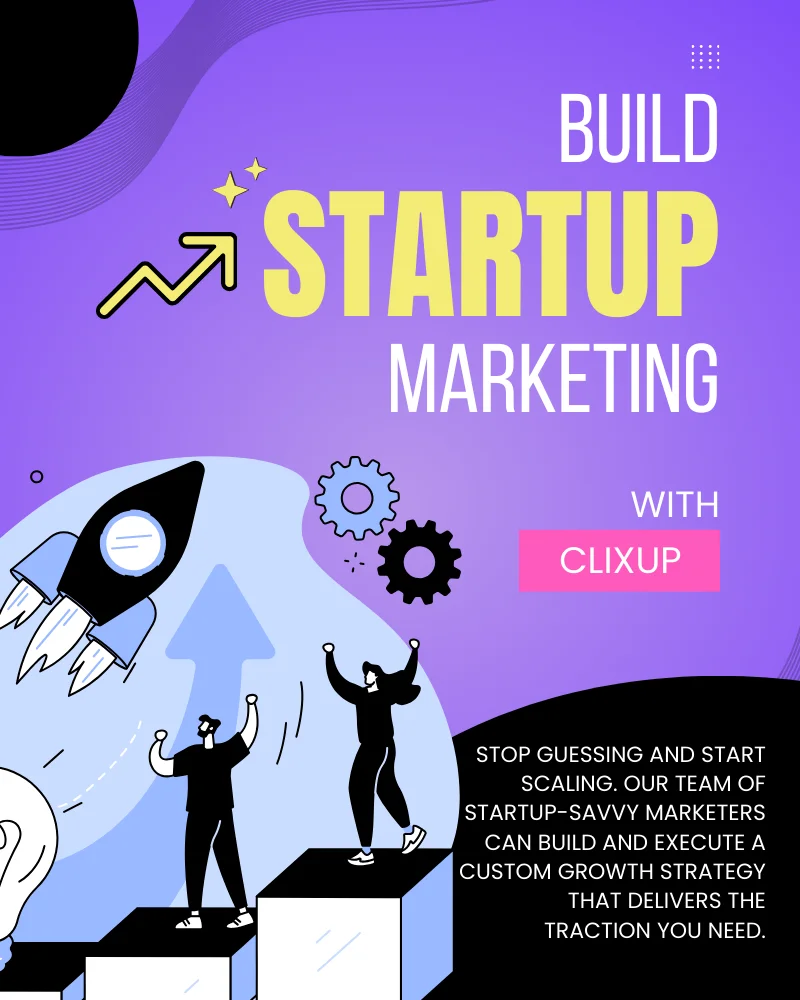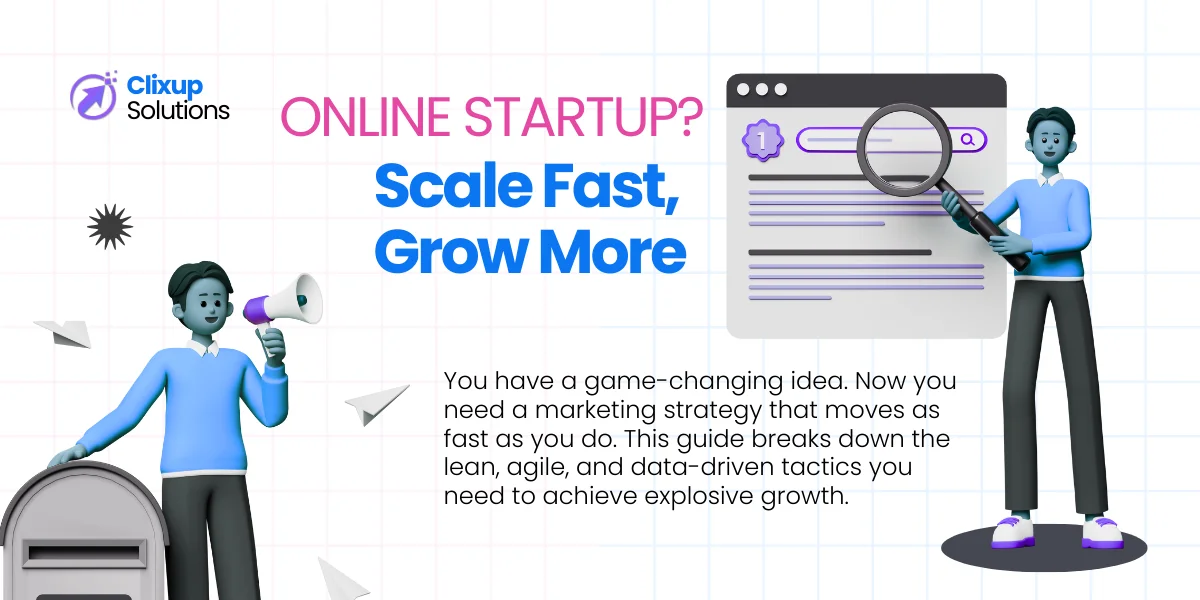Building a startup is a sprint and a marathon combined. You have a groundbreaking product, a passionate team, and the ambition to change the world. But in a crowded marketplace, a great product doesn't sell itself. You need a marketing engine as innovative and agile as your technology. Traditional marketing playbooks, designed for established companies with big budgets and slow timelines, simply won't work.
Startups need a different approach—one that prioritizes speed, data, and capital efficiency. This guide is your roadmap to navigating the unique challenges of startup marketing. We'll cover the lean strategies and scalable channels you need to acquire your first users, prove your model, and build a foundation for explosive growth.
Why Startup Marketing is Different
Marketing for a startup isn't just a scaled-down version of corporate marketing. It operates under a completely different set of rules and constraints.

- Limited Resources: Startups are often bootstrapped or operating on lean venture capital. Every dollar, and every hour, must be maximized for impact. There's no room for wasteful campaigns.
- Need for Speed: The clock is always ticking. You need to validate your idea, find product-market fit, and show traction to secure your next funding round or achieve profitability before the runway runs out.
- Building from Zero: You don't have brand recognition or an existing customer base. Your marketing must build awareness, trust, and credibility from the ground up.
- The Pivot: The startup journey is rarely a straight line. Your marketing must be agile enough to pivot with your product strategy as you learn from your first users.
Think of it like this: a large corporation is a cruise ship—stable and powerful, but slow to turn. A startup is a speedboat—nimble, fast, and able to change direction in an instant to chase the next big wave. Your marketing needs to match that speed and agility.
The Lean Marketing Mindset: Test, Measure, Learn, Scale
The most successful startups apply the principles of the "Lean Startup" methodology to their marketing. This means focusing on rapid, iterative cycles of experimentation to discover what works.
- Build a Minimum Viable Campaign (MVC): Instead of launching a huge, expensive campaign, start with a small, focused test to validate a specific channel or message.
- Measure Key Metrics: Track everything. Focus on metrics that prove customer acquisition and engagement, like Cost Per Acquisition (CPA) and user activation rates.
- Learn from the Data: Analyze the results. What worked? What didn't? Why? These insights are more valuable than the initial outcome.
- Iterate or Scale: Based on your learnings, either tweak the campaign and re-test (iterate) or, if you've found a winning formula, pour resources into it (scale).
The ClixUp Insight
We advise our startup clients to allocate 70% of their marketing budget to proven, scalable channels and 30% to experimentation. This balanced approach ensures steady growth while constantly searching for the next big opportunity.
Core Startup Marketing Strategies for Rapid Growth
While every startup is unique, there are several core strategies that consistently deliver results for early-stage companies.
1. Product-Led Growth (PLG)
Best for: SaaS, software, and freemium products.
PLG makes the product itself the primary driver of customer acquisition. Think of companies like Slack, Dropbox, or Calendly. They offer a free, valuable version of their product that users can adopt and share easily. Marketing's role is to get users to try the product, create a frictionless onboarding experience, and highlight the value that unlocks an upgrade to a paid plan.
2. Foundational SEO
Best for: Long-term, sustainable growth.
Don't sleep on SEO. While it takes time, building an organic presence from day one is crucial. Focus on "bottom-of-the-funnel" keywords that target users actively looking for your specific solution. One well-ranked, high-converting page can become a consistent source of high-quality leads for years to come.
3. Targeted PPC Campaigns
Best for: Quick validation and lead generation.
Paid advertising on platforms like Google and LinkedIn is the fastest way to get in front of your ideal customer. Use it to test your value proposition, drive traffic to a new landing page, and generate your first leads. The key is to start small, track your CPA meticulously, and only scale what's profitable.
4. Content Marketing for a Niche
Best for: Building authority and trust.
Don't try to be everything to everyone. Identify a specific, underserved niche and create content that makes you the go-to expert in that area. Create in-depth guides, original research, or tools that solve a specific problem for your target audience. This builds trust and attracts high-quality, relevant traffic.

Metrics That Matter to Investors (and Your Bottom Line)
Vanity metrics like social media followers won't impress investors. Focus on the numbers that prove you have a viable business model.
- Customer Acquisition Cost (CAC): How much does it cost you to acquire a new paying customer?
- Lifetime Value (LTV): How much revenue does an average customer generate over their lifetime with your product? A healthy business model has an LTV at least 3x its CAC.
- Monthly Recurring Revenue (MRR): For SaaS businesses, this is the predictable revenue you generate each month. Growth in MRR is a key indicator of health.
- Churn Rate: What percentage of your customers cancel their subscription each month? A high churn rate can kill a startup.
- Activation Rate: What percentage of new signups take the key actions that lead to them becoming long-term, sticky users?
When to Hire a Startup Marketing Agency
Many founders try to "do it all" in the early days, but there comes a point when you need expert help to reach the next level. Consider partnering with a startup marketing agency when:
- You've achieved initial product-market fit and are ready to scale.
- You've exhausted your own marketing knowledge and need specialized expertise in channels like SEO or PPC.
- You're preparing for a new funding round and need to show predictable, scalable customer acquisition.
- You're spending too much time on marketing and not enough time on your product.
Startup Marketing FAQs
Ready to Ignite Your Growth?
Stop guessing and start scaling. Our team of startup-savvy marketers can build and execute a custom growth strategy that delivers the traction you need.
Get My Free Proposal